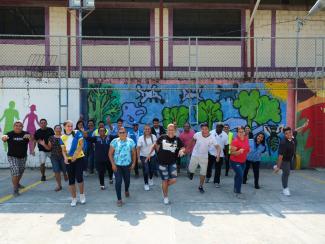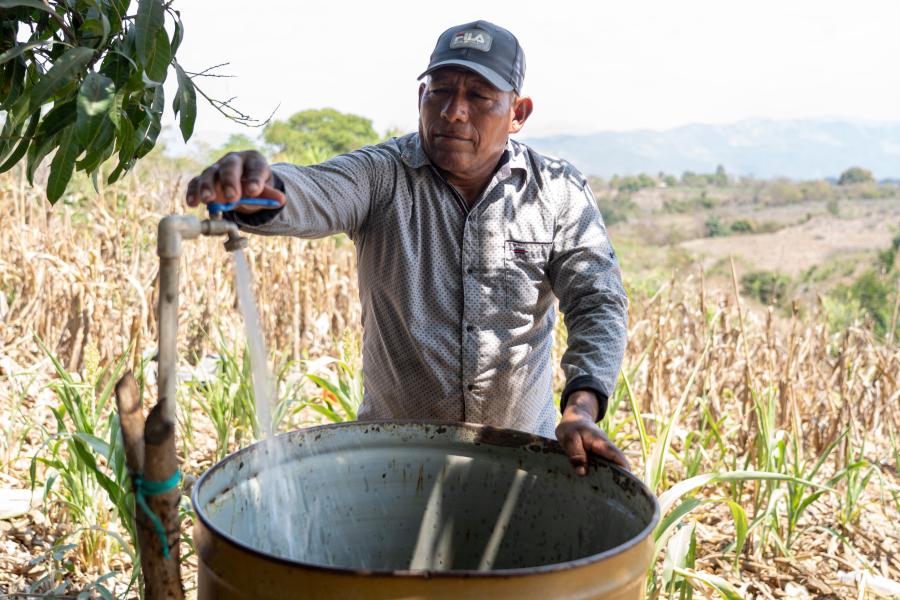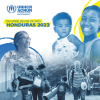Population figures | 2021 - 2025
2025 situation overview
A complex combination of gang-related violence (including gender-based violence and forced recruitment), food insecurity, increasing poverty, and climate change is driving forced displacement in El Salvador, Guatemala and Honduras.
Honduras continues to experience high levels of violence. One of the impacts of violence is that by mid-2024, over 247,000 people are internally displaced in the country.
More than 1 in 10 new asylum applications in the United States were from nationals of Honduras (5%), Guatemala (4%), and El Salvador (2%) in the first half of 2024. In the same period, over 56% of Mexico’s 41,400 new asylum claims were filed by nationals of Honduras (42%), El Salvador (8%) and Guatemala (6%).
In El Salvador, Guatemala, and Honduras, UNHCR also plays a leading role in coordinating the protection response. UNHCR and its partners provide information, counselling, legal and psychosocial support to refugees and migrants on the move who are at heightened risk and become exposed to serious protection risks during their journeys. UNHCR’s community-based interventions aim to empower displaced persons and host communities to find local solutions to the identified risks, promote coexistence, and prevent violence.
In addition, UNHCR supports the governments in Honduras and El Salvador to address the needs of internally displaced people (IDPs), including by enhancing demographic analysis in collaboration with national statistics offices, developing legal frameworks and public policies and promoting access by IDPs to existing services.
UNHCR contributes to inter-agency analyses on protection risks, including the application of a protection analysis framework, which was developed by the Global Protection Cluster with the aim of informing strategies and reducing protection risks in humanitarian contexts.
El Salvador, Guatemala, and Honduras have also experienced an increase in people of diverse origins transiting the territory northward since 2023.
In Guatemala, according to several data sources and the trend over time, it is estimated that upwards of 1 million people will pass through the country in 2024.
UNHCR’s mixed movements report states that 41% indicate violence in their country of origin as reason for leaving. In El Salvador, Guatemala, and Honduras, UNHCR supports national asylum systems in El Salvador, Guatemala, and Honduras, with a focus on improving access to fair and efficient asylum procedures, strengthening staff technical capacity, promoting modernization and digitalization of the system; including enhanced registration, improved triaging and case management and proposing solutions for backlog management. UNHCR also works with governments and over 100 operational partners, including local organizations and networks, which provide humanitarian assistance and promote access to services and rights for forcibly displaced populations and host communities.
El Salvador, Guatemala and Honduras are among seven States – along with Belize, Panama, Costa Rica and Mexico – supported by UNHCR and the Organization of American States (OAS), that form the Comprehensive Regional Protection and Solutions Framework (MIRPS), and are implementing regional and national action plans focused on access to protection, education, health, and livelihoods for displaced persons.
Financial overview
Hurricane-hit community in Honduras comes together to prepare for future climate disasters
By Gabriela Villeda Castillo and José Romero Vásquez in San Pedro Sula, Honduras
After 40 years living in Chamelecón, a low-income community near the Honduran city of San Pedro Sula, Susana*, 65, was no stranger to calamity. Three years after experiencing huge losses and displacement from Hurricanes Eta and Iota, the San Pedro Sula community is determined to be ready for the next disaster.
Read the story










